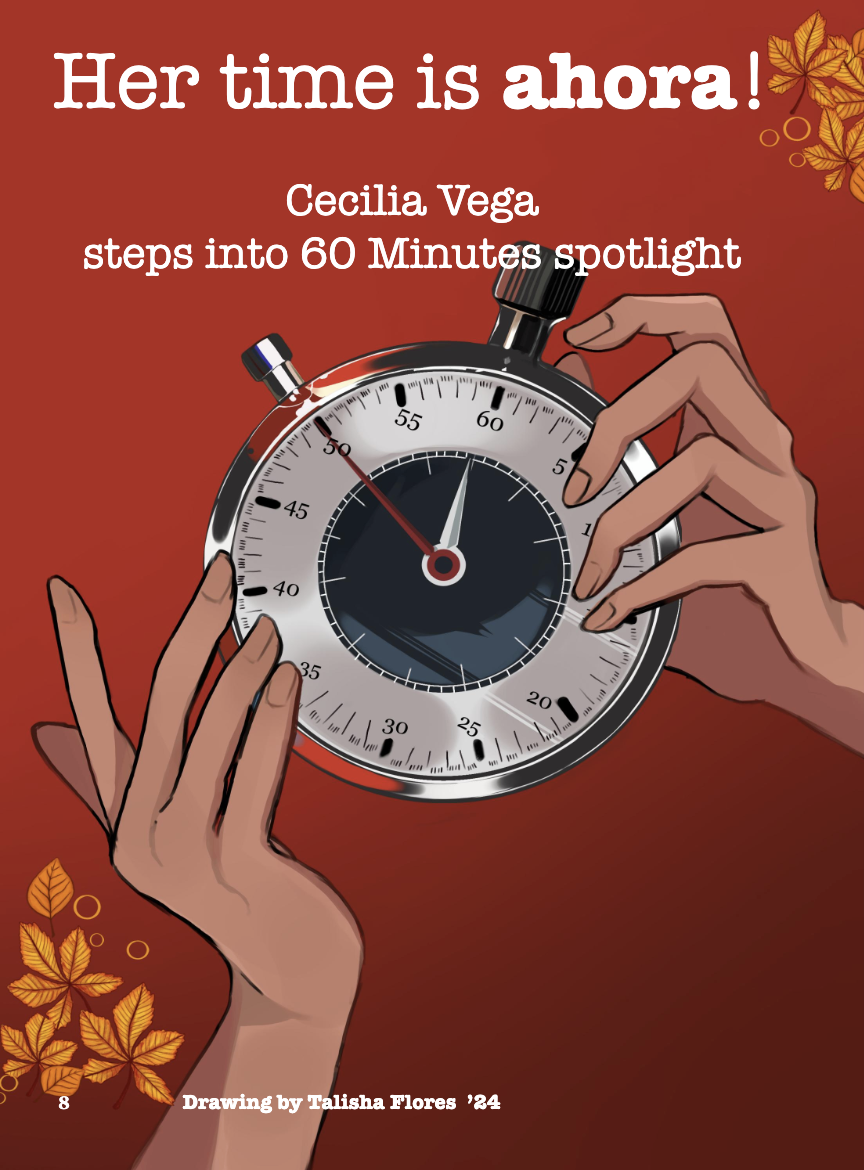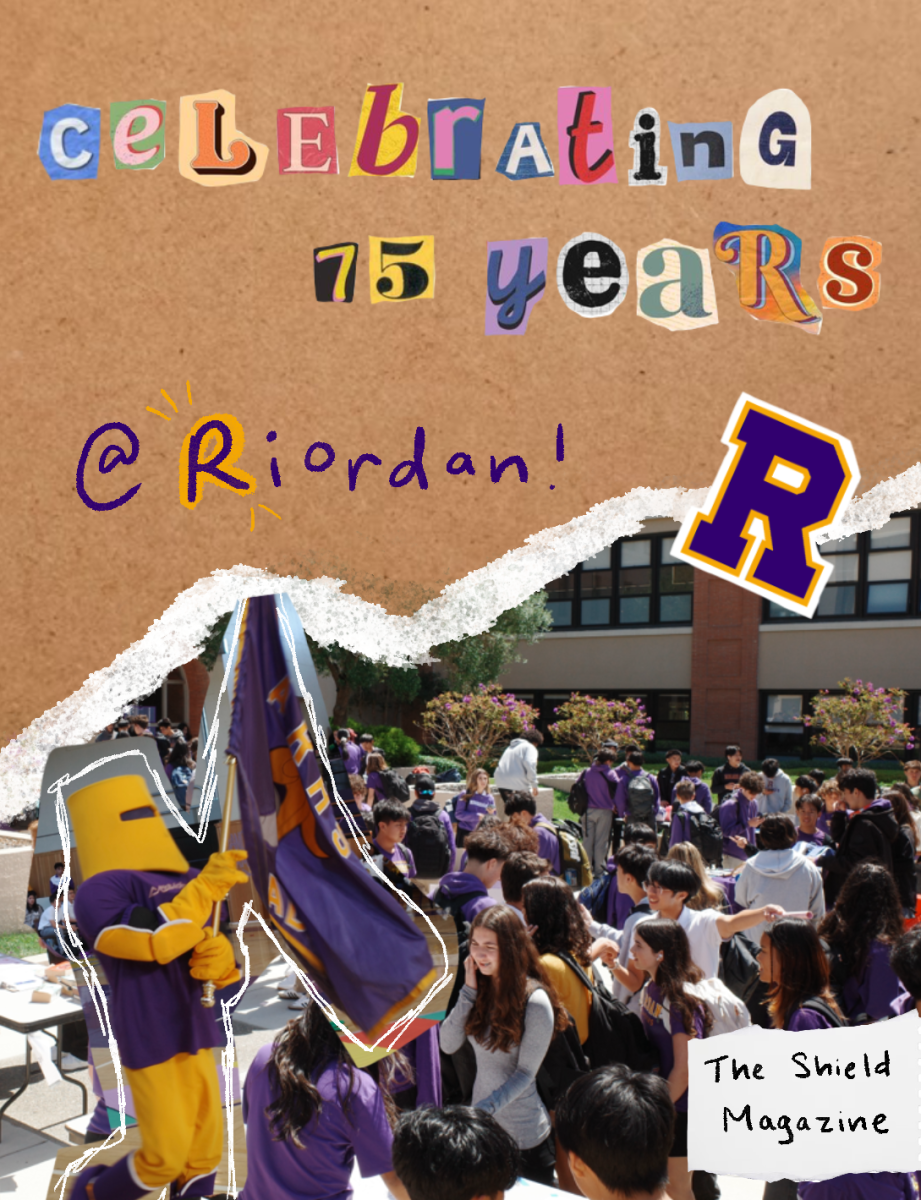In January, 60 Minutes named Cecilia Vega as its first Latina correspondent on the program.
She transitioned from being the Chief White House correspondent on ABC to being a reporter for 60 Minutes, a highly successful CBS broadcast news program that dives deep into their stories with in-depth interviews and investigative reports.
Vega has interviewed various influential people including President Joe Biden and former President Donald Trump.
Vega attended Salesian High school before later attending American University in Washington DC. Attending a Catholic school as part of her upbringing is what she believes helped her understand the concept of “giving back,” and equipped her with a natural curiosity of the world.
The Emmy Award winner expressed, “I definitely grew up in a house that was a big news consuming household and I have the personality that news reporters have and I’m an innate nosy person and a very curious person. And I think journalism can help make the world a better place.”
Thinking back to the beginning of her career, she said, “I think every job is the biggest job I ever had, it just depends where you are in that stage of your life.”
“The very first job I had at the San Bernardino Sun newspaper was the biggest job I could ever get at the time, and doors just kept opening, so each one has been bigger than the next,” she added.
The broadcast correspondent initially planned to work with the New York Times, living abroad and writing for a newspaper. That is until San Francisco’s local news station KGO-TV asked her, while she was still working at the S.F. Chronicle, if she wanted to learn broadcasting. After initially hesitating about television journalism, she began to think more about her future in journalism and then decided to make the jump to broadcasting.
She realized that broadcasting was better suited for her after seeing how the newspaper world was changing. Another big change for her career was the transition from local news to the network, with a broader variety of stories and viewers worldwide.
“It was a very different way of storytelling for me,” said Vega.
She added, “I’ve definitely had a lot of pinch me moments where I was sitting on the set of election night or covering a Hilary Clinton campaign, or sitting across the desk from journalistic idols like Dianne Sawyer or George Stephanopoulos.”
In terms of the challenges of her career, Vega shared some of the difficulties of her job as a journalist, saying,“The things I’ve seen can be very heavy, covering the immigration crisis at the border and seeing young children and child separations, policing issues that are being followed as a country and even war right now; I just got back from Ukraine not too long ago and I’m doing a heart breaking story on children that are being kidnapped by Russians. The pace of the job is hard and the story content.”
Being on 60 Minutes now allows her to cover many of her most memorable and impactful stories, like working at the border and in countries like Ukraine.
The show allows her to have more time on a certain story and a more in-depth experience with writing and interviewing, in comparison to working solely on politics where a story can change in a matter of hours and her interviews would sometimes only last a couple minutes at most. She can now hold interviews for a matter of hours.
“What makes 60 Minutes such a special show is that it is long for a magazine and in my opinion that is the best that exists on television anywhere. And you get to do, as a correspondent on the show, anything that interests you in terms of the topics that you cover,” said Vega.
Although honored by the title of being the first Latina correspondent on 60 Minutes, Vega understands the title to be a complicated reality.
“I always say it’s great to be the first, you just don’t want to be the last, but I also think you can put a lot of pressure on yourself when you’re a first and I find myself doing that sometimes and I have to be very conscious of it and catch myself because while I am a huge champion of newsroom diversity, I think all news rooms should look like the communities that they cover. It’s not only my responsibility to help diversify those newsrooms,” she added.
“Cecilia Vega shows us young journalists a good example of success and how to break barriers as a female and a Latina especially how she ventured out and did multiple things for the Bay Area and brought us important news” Said Emma Rocha’ 25
Vega gave a piece of advice for aspiring young journalists who want to make a positive impact on reporting by speaking about the importance of persistence and being a good listener to better connect with people. Wanting to build relationships, in the most genuine way, is how you can build the best trust, which also comes with journalists prioritizing accuracy above all else.
“To me it’s the most important thing I can tell anybody which is- read, read every single thing you can get your hands on.”







